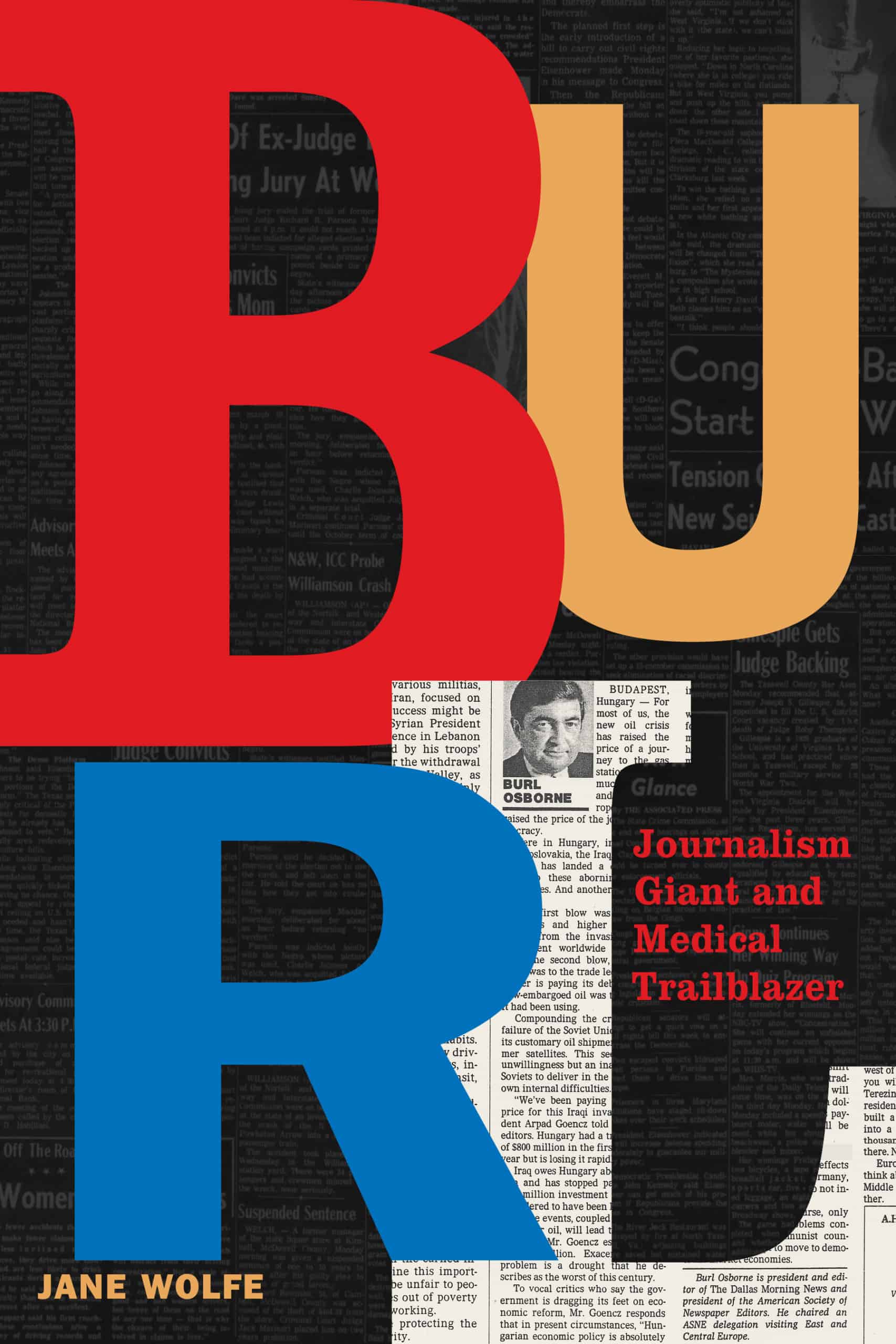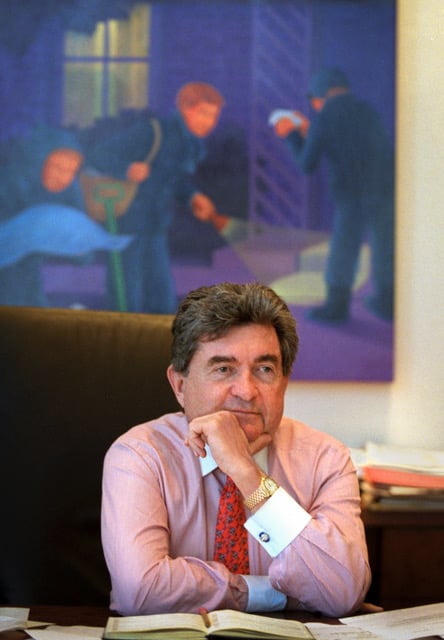
TORRIA CATRONE, Managing Editor—
Best-selling author and Denison alum Jane Wolfe ‘80 has just released “Burl: Journalism Giant and Medical Trailblazer” (Sept. 6, 2022, Andrews McMeel Publishing). The new biography chronicles the extraordinary life and career of journalist Burl Osborne (1937-2012).
Wolfe studied English with a focus on creative writing during her time at Denison. Paul Bennett, who taught for approximately 40 years at the university, was her mentor and inspiration. One piece of advice from him has stood the test of time for Wolfe: “The more you write, the better your writing will be.” She has surely lived this advice, writing non-stop at Denison and building her love for English into a 40 year long writing career following graduation. In addition to “Burl,” Wolfe has published “The Murchisons: The Rise and Fall of a Texas Dynasty” (St. Martin’s Press) and “Blood Rich: When Oil Billions, High Fashion, and Royal Intimacies Are Not Enough” (Little, Brown & Co.).
After graduating from Denison in 1980, Wolfe moved to Dallas, Texas, where she got a job working at The Dallas Morning News. She began there just as Osborne was getting started as executive editor and publisher. Osborne was very respected for both the way he ran the paper and his outstanding journalism. His writing stood on its own, she says, with no sensationalization or bias necessary. Wolfe says, “He was a good guy that finished first.”
10 years ago, when Burl Osborne died, his widow reached out to Wolfe to tell her husband’s story. Immediately, Wolfe said yes. She says knew Osborne as a “real stickler for honesty and fairness and integrity in reporting.” In an age where fake news and alternative facts have become terms used against reporters and to demonize the press, Wolfe saw an opportunity to tell the story of a “great editor, excellent writer, and great leader” in reporting.
Before he spent 21 years at The Dallas Morning News, Osborne wrote for the Associated Press. He worked his way into the AP’s executive ranks before stepping away in 1980 to lead The Dallas Morning News. Osborne successfully brought the paper to national prominence, winning one of the last great newspaper wars and a number of Pulitzer prizes to boot. Through his creativity and dedication to good journalism, he ensured that The Dallas Morning News got more circulation and advertising than their competitor, The Dallas Times Herald. “He didn’t let up at all. He just kept fighting and fighting and ultimately won.”
Aside from his journalistic achievements, Osborne was known as a trailblazer in the medical community. He was diagnosed with fatal kidney disease as a child and struggled with it all his life, ultimately suffering from kidney failure. Osborne was only the 130th person in the world to get a kidney transplant in 1966, and was one of the first people to ever undergo at-home dialysis treatments. Only “he and 12 other people in the world were doing home dialysis” at this time. He wrote at length about the dawn of at-home kidney treatment technology, calling these the “model-T days of dialysis”. From his writing, the public got to see a first-hand account of living with kidney failure, and learned more about the mechanisms of the disease and its treatments.
Despite this serious condition and all it took out of him, Osborne took very little time off and worked diligently. “He didn’t let up even though he was sick and sometimes couldn’t walk up a flight of stairs. He still covered the stories that he was assigned and that he felt needed to be covered.” His commitment to journalism and integrity was abundantly clear. Somehow, Osborne didn’t let it get him down. Wolfe says that he had a positive outlook despite his diagnosis: “He lived everyday like it was his last, and it very well could have been.”
Wolfe looks forward to the next generation of reporters as newspapers fight a new war: the decline of print media. “Everyone is a reporter these days! On social media, everyone is reporting something. There are so many sites, so many podcasts, so many online papers…” Wolfe says one lesson that contemporary journalists can learn from Osborne is to “be fair, balanced, and truthful in reporting.” His unique style of journalism might never be recreated, but Osborne teaches us not to take one side or the other. In an ever-polarizing age, fair reporting is more important than ever.
Wolfe hopes that Denisonians take to heart the important messages that “Burl” has to share. She tells me that the best lesson she learned while researching Osborne was to “take calculated risks.” The reward could be greater than you’d ever imagine.


